Intro
Understand thyroid health with our TSH test normal range guide, covering thyroid-stimulating hormone levels, hypothyroidism, hyperthyroidism, and thyroid function tests for accurate diagnosis and treatment.
The TSH test, also known as the Thyroid-Stimulating Hormone test, is a crucial diagnostic tool used to assess the functioning of the thyroid gland. The thyroid gland plays a vital role in regulating various bodily functions, including metabolism, growth, and development. In this article, we will delve into the world of TSH testing, exploring the normal range, its significance, and what the results might indicate about your thyroid health.
The TSH test measures the levels of Thyroid-Stimulating Hormone in the blood, which is produced by the pituitary gland. This hormone stimulates the thyroid gland to produce thyroid hormones, primarily T4 (thyroxine) and T3 (triiodothyronine). The TSH level is an indirect indicator of the thyroid gland's functionality, as it reflects the pituitary gland's response to the levels of thyroid hormones in the blood. When the thyroid gland produces adequate amounts of thyroid hormones, the TSH level decreases, and when the thyroid gland produces insufficient amounts, the TSH level increases.
Understanding the normal range of TSH levels is essential for interpreting the results of the TSH test. The normal range for TSH levels can vary slightly depending on the laboratory and the individual's age, but generally, it is considered to be between 0.4 and 4.5 milliunits per liter (mU/L). However, some laboratories may have slightly different reference ranges, so it's essential to consult with a healthcare professional to determine the specific normal range for your test results.
TSH Test Normal Range
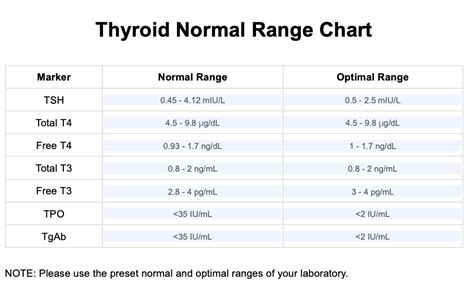
The TSH test normal range is a critical aspect of diagnosing thyroid disorders. A TSH level within the normal range typically indicates that the thyroid gland is functioning correctly, producing adequate amounts of thyroid hormones. However, a TSH level outside the normal range can indicate various thyroid-related conditions, such as hypothyroidism (underactive thyroid) or hyperthyroidism (overactive thyroid).
TSH Levels and Thyroid Disorders
TSH levels can be categorized into several ranges, each corresponding to a specific thyroid condition. For instance: * A TSH level below 0.4 mU/L may indicate hyperthyroidism, where the thyroid gland produces excessive amounts of thyroid hormones. * A TSH level between 0.4 and 4.5 mU/L is generally considered normal, indicating that the thyroid gland is functioning correctly. * A TSH level above 4.5 mU/L may indicate hypothyroidism, where the thyroid gland produces insufficient amounts of thyroid hormones. It's essential to note that these ranges can vary slightly depending on the laboratory and individual factors, such as age and medical history.Interpreting TSH Test Results
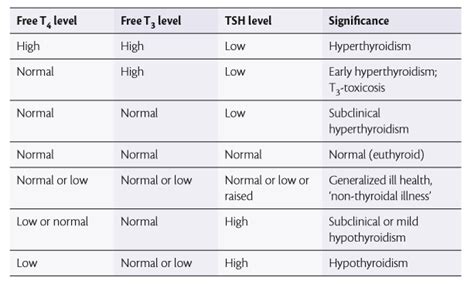
Interpreting TSH test results requires careful consideration of various factors, including the individual's medical history, symptoms, and other laboratory test results. A healthcare professional will typically evaluate the TSH level in conjunction with other thyroid function tests, such as free T4 (FT4) and free T3 (FT3), to determine the underlying cause of any thyroid-related conditions.
In some cases, a TSH level within the normal range may not necessarily indicate optimal thyroid function. For instance, some individuals may experience symptoms of hypothyroidism or hyperthyroidism despite having a TSH level within the normal range. This highlights the importance of considering multiple factors when interpreting TSH test results and the need for a comprehensive diagnostic approach.
TSH Test Results and Thyroid Function
The relationship between TSH test results and thyroid function is complex and influenced by various factors. Some key considerations include: * The presence of thyroid antibodies, which can indicate autoimmune thyroiditis, a condition where the immune system attacks the thyroid gland. * The levels of FT4 and FT3, which can provide insight into the thyroid gland's production of thyroid hormones. * The individual's symptoms and medical history, which can help identify potential underlying causes of thyroid-related conditions.TSH Test Preparation and Procedure
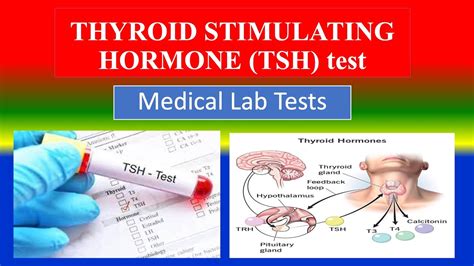
The TSH test is a relatively simple and non-invasive procedure that requires a blood sample. To prepare for the test, individuals should:
- Avoid eating or drinking anything that may interfere with the test results, such as foods high in iodine or certain medications.
- Inform their healthcare provider about any medications or supplements they are taking, as these may affect the test results.
- Follow any specific instructions provided by their healthcare provider or laboratory.
The TSH test procedure typically involves:
- A healthcare professional drawing a blood sample from a vein in the arm.
- The blood sample being sent to a laboratory for analysis.
- The laboratory measuring the TSH level in the blood sample and reporting the results to the healthcare provider.
TSH Test Risks and Side Effects
The TSH test is generally a safe and risk-free procedure. However, some individuals may experience minor side effects, such as: * Pain or bruising at the blood draw site. * Dizziness or lightheadedness. * In rare cases, infection or bleeding at the blood draw site.It's essential to discuss any concerns or questions about the TSH test with a healthcare provider, who can provide personalized guidance and support throughout the testing process.
TSH Test Results and Treatment Options
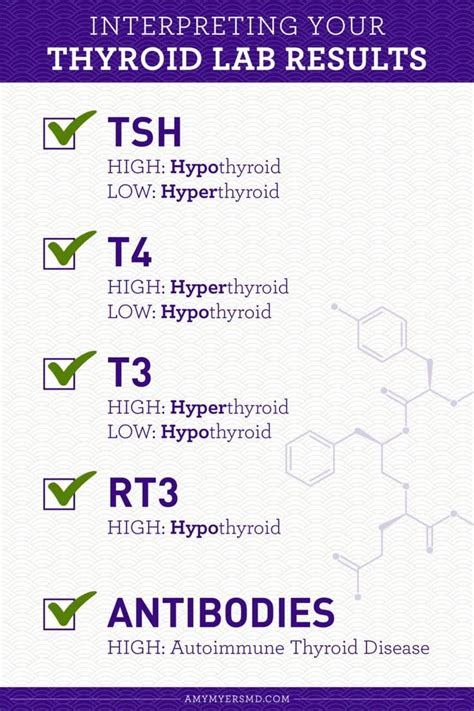
The treatment options for thyroid-related conditions depend on the underlying cause and severity of the condition. For instance:
- Hypothyroidism may be treated with thyroid hormone replacement medication, such as levothyroxine (T4) or liothyronine (T3).
- Hyperthyroidism may be treated with medications that reduce thyroid hormone production, such as methimazole or propylthiouracil.
- In some cases, surgery or radioactive iodine therapy may be necessary to treat thyroid-related conditions.
A healthcare provider will work with the individual to develop a personalized treatment plan, taking into account their unique needs and medical history.
TSH Test Results and Lifestyle Changes
In addition to medical treatment, lifestyle changes can play a crucial role in managing thyroid-related conditions. Some key considerations include: * Maintaining a healthy diet, rich in fruits, vegetables, and whole grains. * Engaging in regular exercise, such as walking or yoga. * Managing stress through techniques like meditation or deep breathing. * Getting adequate sleep and practicing good sleep hygiene.By combining medical treatment with lifestyle changes, individuals can effectively manage their thyroid health and improve their overall well-being.
TSH Test and Pregnancy
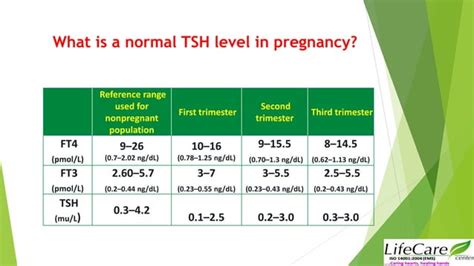
The TSH test is an essential tool for monitoring thyroid function during pregnancy. Thyroid hormones play a critical role in fetal development, and untreated thyroid-related conditions can increase the risk of pregnancy complications.
During pregnancy, the normal range for TSH levels is slightly different, typically ranging from 0.1 to 3.5 mU/L. A healthcare provider will closely monitor TSH levels and adjust treatment as needed to ensure optimal thyroid function and a healthy pregnancy.
TSH Test and Fetal Development
The TSH test can provide valuable insights into fetal development and thyroid function. Some key considerations include: * The presence of thyroid antibodies, which can increase the risk of pregnancy complications. * The levels of FT4 and FT3, which can affect fetal development and thyroid function. * The individual's medical history and symptoms, which can help identify potential underlying causes of thyroid-related conditions.By closely monitoring TSH levels and adjusting treatment as needed, healthcare providers can help ensure a healthy pregnancy and optimal fetal development.
TSH Test and Children
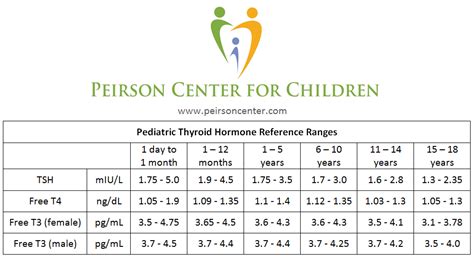
The TSH test is an essential tool for monitoring thyroid function in children. Thyroid hormones play a critical role in growth and development, and untreated thyroid-related conditions can increase the risk of developmental delays and other complications.
During childhood, the normal range for TSH levels is similar to that of adults, typically ranging from 0.4 to 4.5 mU/L. A healthcare provider will closely monitor TSH levels and adjust treatment as needed to ensure optimal thyroid function and healthy growth and development.
TSH Test and Pediatric Thyroid Disorders
The TSH test can help diagnose and monitor pediatric thyroid disorders, such as: * Congenital hypothyroidism, a condition where the thyroid gland is underactive from birth. * Juvenile hypothyroidism, a condition where the thyroid gland becomes underactive during childhood or adolescence. * Pediatric hyperthyroidism, a condition where the thyroid gland is overactive.By closely monitoring TSH levels and adjusting treatment as needed, healthcare providers can help ensure optimal thyroid function and healthy growth and development in children.
What is the normal range for TSH levels?
+The normal range for TSH levels is typically between 0.4 and 4.5 milliunits per liter (mU/L), but this can vary slightly depending on the laboratory and individual factors.
What does a high TSH level indicate?
+A high TSH level may indicate hypothyroidism, a condition where the thyroid gland produces insufficient amounts of thyroid hormones.
Can I take the TSH test during pregnancy?
+Yes, the TSH test is an essential tool for monitoring thyroid function during pregnancy. A healthcare provider will closely monitor TSH levels and adjust treatment as needed to ensure optimal thyroid function and a healthy pregnancy.
In conclusion, the TSH test is a vital diagnostic tool for assessing thyroid function and diagnosing thyroid-related conditions. By understanding the normal range for TSH levels and the significance of TSH test results, individuals can take an active role in managing their thyroid health and overall well-being. If you have any concerns or questions about the TSH test or thyroid function, we encourage you to consult with a healthcare provider or share your thoughts in the comments below.
